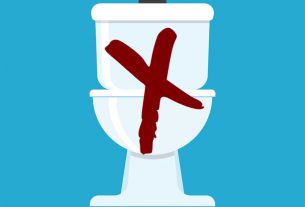Various studies have shown that COVID-19 survivors and health care workers experience increased sleep disturbances.
BENGALURU: If you are staying awake late at night scrolling through your phone, struggling to sleep, you are not alone. Changes in lifestyle brought about by the pandemic have led to a surge in individuals reporting sleeping trouble.
Before the pandemic, Sanghamitra Majumdar (28) used to leave home for office at 9 a.m., and return at 7 p.m. Tired working for 10 hours, she would sleep by 11:30 p.m. Now, she stays awake in the dead hours of the night only to sleep at 5 a.m. She said, “I tested positive for COVID two months ago. I live with my mother and my grandmother. I am more worried about their health.” With work shifting online, Majumdar’s day is a little less tiring. This has impacted her sleep cycle.
A study published at the United States National Library of Medicine National Institutes of Health found out that the novel coronavirus has caused sleep disturbances and impaired our circadian rhythms. A circadian rhythm is a natural cycle that regulates the sleep-wake cycle roughly around every 24 hours. The study said that it is important to have a healthy sleep to cope adaptively in times of such crises.
Malay Chakraborty (21) also reported the same problem. He was diagnosed with COVID a week before. His daily routine has changed, he wakes up at 1 p.m. daily.
The study showed that while sleep disturbances and psychological distress are likely to occur in response to stressful life events, social confinement and isolation during COVID-19 bring new dimensions that might lead to increased sleeping problems. Beyond the stress and anxiety associated with health, employment, finances, and the fear of being infected, the restrictions surrounding the social confinement have upset daily routines that typically serve as timekeepers for sleep-wake rhythms to remain in synchrony with the day-night cycles.
Mrs. Neena Jacob, a family life educator and counsellor, said, “This is happening because of anxiety and fear.” She explained that people are insecure and tense due to the situation around them. “People have been constricted to such a limited place, that they can’t even go out or a walk,” she added.
Neurologists who specialize in sleep disorders have termed this as “COVID-somnia”. An article by the Sleep Foundation defined coronasomnia as a new term that refers to individuals reporting sleep problems due to the pandemic. It affirms that with increased stress and anxiety there is a definite impact on our sleep and mental health.
Simple routines typically performed at fixed times such as waking up in the morning, showing up at work, eating meals, and maintaining social and leisure activities have all been disrupted by the pandemic and social confinement.
Mrs. Jacob suggested that avoiding watching the news before sleeping might help in overcoming the problem.




